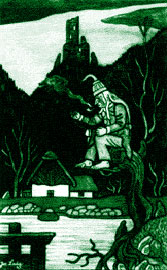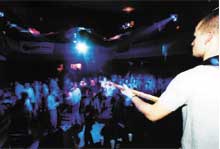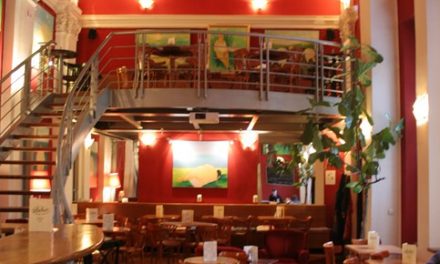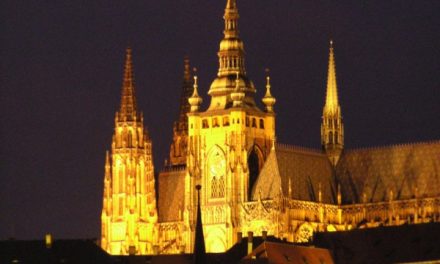Parades… forget it. It is my guess that the only way we’ll get any Irish spirit on March 17th will be to head out to one of the many Irish pubs around Prague.
Most people would probably say that the Irish and Czechs have very little, if any links throughout history. However this is not true.
The first historically defined people to inhabit the Czech lands were in fact Celts. It is said that the Celts first inhabited the territory several centuries BC The most commonly mentioned Celtic tribe in the Czech lands is the Boii, who lend their name to both Bohemia and Bavaria.
Around the third century BC the Germanic northerners became interested in Roman culture and Celtic wealth. They began an offensive that forced most Celts out of the area of the Czech Republic.
Archeologists have found several ancient Celtic oppidum scattered throughout Bohemia and Moravia.
Several centuries later, after the flight of the Earls, continental Europe experienced a massive influx of Catholic Irishmen who came with the hope of being employed in positions that were unattainable in Ireland.
The Austrian Empire was attractive to many Irishmen, firstly because of the work prospects, and secondly, and perhaps more importantly, due to the empire’s devout Catholic beliefs and policies.
In 1618 the Thirty Years War began with that favorite Prague past time, defenstration – or throwing people from windows. At the culmination of the war the Czech nobility was forced into exile and their lands were distributed to loyal Catholic families from Ireland, Austria, Spain, France and Italy.
In 1637 an order of Franciscan monks established a monastery in Prague on what is known today as Hybernska ulice or ‘the street of the Irish’.
Jesuit Fr. Peter Wadding, from Ireland, was appointed rector of Charles University in 1629, then more than one hundred years later Dr. Jacobus Smith was named to the same post. Their are also several accounts of Irishmen excelling to both greatness and notoriety in the Austro-Hungarian Army.
Both the Czech Republic and Ireland possess unusually rich cultural histories in spite the fact that they are both small countries. Some say that this can be attributed to the lack of political freedom that both countries endured for long periods of time, leaving artistic endeavors as a path to freedom for many.
In both countries the intelligentsia played a large part in the call for national self-determination, in the Czech case the major players were Josef Dobrovsky and Josef Jungmann, in Ireland it was W. B. Yeats and Lady Gregory leading the way.
Both countries also have a history of writers in exile. Due to strict censorship laws in Ireland both James Joyce and Samuel Beckett left the country. Earlier Oscar Wilde and George Bernard Shaw left Ireland for London.
Whereas in the Irish case the exile was self-imposed, it was quite the contrary in the Czech lands. Czech artists were driven out, first by the threat of the Nazis and their fascism and then later by the communist regime that settled in after World War II, and finally in 1968 when laws restricting travel were liberalized.
On a more frivolous note, James Joyce’s sister, Eileen, married Frantisek Schuarek in Trieste in 1915. Schuarek was a bank cashier, originally from Ceske Budejovice. Unfortunately he went on to embezzle funds from the bank and later commit suicide. Joyce’s quintessential work, Ulysses, was published in Czechoslovakia in 1930, six years after its first publication in Paris.
The first edition of the Czech translation sold out. Later on James Joyce was to say that the Czech and Irish languages seem to have similar roots.
And more recently, Samuel Beckett and Vaclav Havel have both expressed their mutual admiration for each other. Beckett’s play “Catastrophe” was written especially for Havel. It was performed in 1982 at the 36th International Theater Festival in Avignon on what was called a “Night for Vaclav Havel”. On a state visit to Ireland in June 1996 Havel paid a special tribute and expressed his gratitude to the late Beckett.
Although the Czech/Irish links are not quite obvious at first, obviously one does not have to look too far to find them. With the opening of the Irish pubs around Prague in recent years and the St. Patrick’s Day Festival planned this March 14th through 17th, it is quite obvious that Irish culture is once again beginning to flourish on Czech soil.




